#navketan
Text
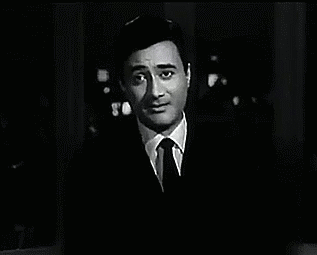
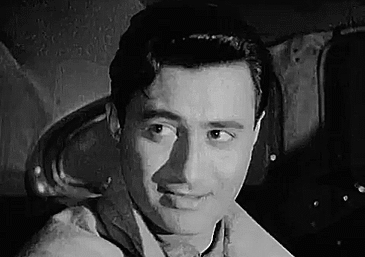
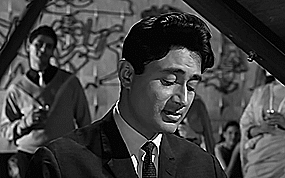



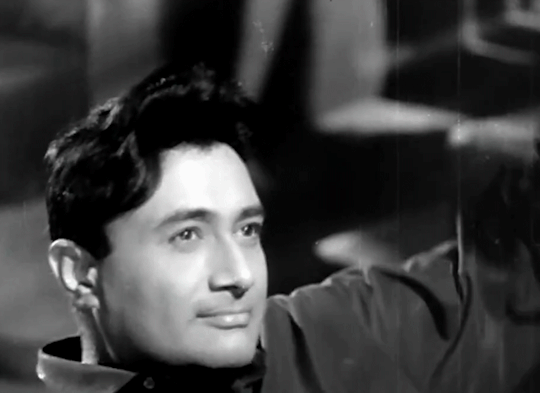
Shades of Dev. Most handsome actor ever. ❤️
#devanand#dev#bollywood#classic#vintage#evergreen#hindi cinema#bollywoodedit#old hindi songs#old bollwood#retro#navketan#hindi movies#actor#beautiful#handsome#teendeviyan#tere ghar ke samne#hum dono
32 notes
·
View notes
Text
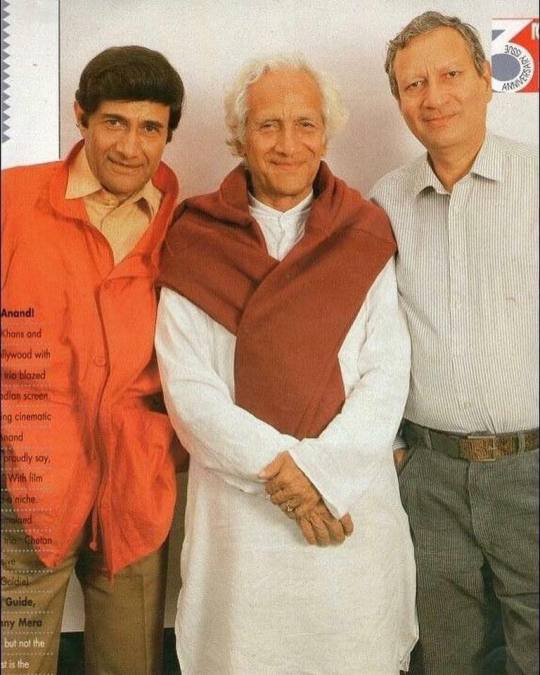
Remembering #ChetanAnand on his birth anniversary (03/01). Chetan Anand was a film producer, screenwriter, and director, whose debut film, Neecha Nagar, was awarded the Palme d'Or (Best Film) award at the first-ever Cannes Film Festival in 1946.
In the early 1940s, he was a history teacher and wrote a script about King Ashoka. He showed it to director Phani Majumdar in Bombay. He didn't pass the Indian Civil Service exams in London, but Majumdar gave him a leading role in the Hindi movie "Rajkumar" in 1944. He joined the Indian People's Theatre Association in Bombay too.
He directed "Neecha Nagar," which won an award at Cannes in 1946, the first Indian movie to be internationally recognized. It was also the first movie for Kamini Kaushal and the debut of Pandit Ravi Shankar.
In the 1950s, he and his brother Dev Anand created Navketan Productions in Bombay. Their first movie, "Afsar," had moderate success. He directed more films like "Taxi Driver" and "Aandhiyan."
He continued acting while directing, appearing in "Humsafar" in 1957 and directing and acting in "Arpan" and "Anjali" the same year. He acted and directed several more films like "Kala Bazar" and "Hindustan Ki Kasam."
He formed Himalaya Films and worked with a team to create memorable Hindi movies like "Haqeeqat" and "Heer Raanjha."
Anand "discovered" Rajesh Khanna through an acting competition and cast him in "Aakhri Khat," which was known for its music and locations. He directed Khanna again in "Kudrat."
He's also known for directing the television serial "Param Vir Chakra," which aired in 1988.
Anand Brothers: #DevAnand, Chetan Anand and #VijayAnand
1 note
·
View note
Text
Excellent.
https://www.facebook.com/groups/306600746359758/permalink/2050601391959676/?mibextid=lURqYx
Excellent byLate Navketan Architect DevAnand
0 notes
Text
Tum bhi na bhoolo Baalam - Geeta Dutt - S D Burman – Kalpana Karik | Baazi (1951)
Today’s second post is the analysis of the song, Tum bhi na bhoolo Baalam, from the movie, Baazi (1951). The analysis has been completed on the basis of the context and picturization.
Movie – Baazi (1951)
The song, Tum bhi na bhoolo Baalam, was featured in the movie, Baazi (1951), directed by Guru Dutt, produced by Dev Anand under Navketan Films Banner.
Madan (Dev Anand) is a gambler and plays…
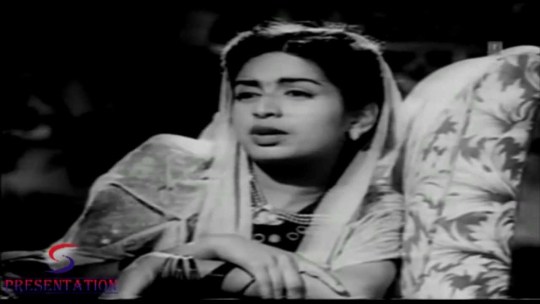
View On WordPress
0 notes
Text
The story behind the song KHOYA KHOYA CHAAND KHULA AASMAAN.....
By

Dinesh Shankar Shailendra
For their ninth film under the Navketan banner, Dev Anand and Vijay Anand decided to try out the S D Burman - Shailendra combination.... The film was titled "Kaala Bazaar"
S D Burman, known for his bad temper, was under tremendous pressure. Shailendra, probably too busy with his other assignments, was not delivering a song, urgently needed for the film. Dev Anand and Vijay Anand were frantic... They were pestering Burmanda, who in turn was repeatedly asking Shailendra for the words..... Shailendra was making all kinds of excuses for not delivering....
Finally, one fine day, the angry old man decided that he had had enough !
Shailendra was at his place. Burman da called his young son, Pancham ( R D Burman ) and told him... " You will go with Shailendra and DO NOT come home unless he gives you the lyrics " !!!
Neither Pancham, nor Shailendra could argue with him.... Pancham quietly got into Shailendra's car.... Shailendra assured him that he would deliver the song.... Pancham smiled as the car drove to Shanker Jaikishen's music room... Jaikishen said... " Shailendra ji has a lot of pending work to do for us.... you are in the queue..."
It was evening.... Shailendra finished his work with Shanker Jaikishen and with Pancham, got into his car.... He instructed the driver to go to National Park..... There, Shailendra kept smoking cigarette after cigarette.... BUT NO WORDS !!!
Pancham was cursing his luck as they got back into the car.... it was almost night.... Shailendra told his driver.... " Juhu beach chalo ".....
At the beach, Shailendra was leisurely strolling along with the eager Pancham trying to keep step..... The beach was deserted.... Shailendra asked Pancham for a matchbox..... Another jolt for the youngster ! Shailendra knew that he smoked.... what if he told Burman da ???
Pancham sheepishly handed over his matchbox to Shailendra..... Shailendra was lost in thought.... he lit his cigarette, returned the matchbox and asked Pancham to give him the tune Burman da had composed... Pancham, tapping the matchbox in rhythm, hummed the tune.....
Shailendra kept looking at the sea and the sky, puffing away on his cigarette.... after a while, he told Pancham.... "You can go home.... tell Dada, I will be at your place in the morning with the full song.... "He hummed the ' mukhda '.....
" Khoya khoya chand, khulaa aasmaan,
aankhon mein saari raat jaayegi,
tum ko bhi kaise neend aayegi "
Pancham smiled.... he knew that this song was a winner ! He ran.... hailed a cab and went home....
The next morning, when his father asked him for the song, Pancham handed him a crumpled piece of cigarette pack foil with the words of the mukhdaa scribbled on it.... :)
The situation is an oft-repeated one...
Dev Anand is trying to woo Waheeda.... It is a song of pure romance....
See what Shailendra does....
"Masti bharee hawaa jo chali,
khil khil gayee yeh dil kee kali,
mann ki gali mein hai khalbali,
ke unko toh bulao....."
"Taarey chaley, nazaare chaley,
sang sang mere woh saarey chaley,
charon taraf ishaare chaley,
kisi ke toh ho jao....."
"Aisi hee raat, bheegi si raat,
haathon mein haath hotey woh sath,
keh letey unse dil ki yeh baat,
ab toh naa satao.... "
"Hum mitt chaley jinke liye,
bin kuchh kahe woh chup chup rahey,
koyi zaraa yeh unse kahey,
naa aise aazmao"
Shailendra chooses his words very carefully.... Beginning with the ambience, he gradually moves on to Dev Anand's personal feelings.... expressing his love for Waeeda Rehman.
A little note before we go onto Vijay Anand's work.... Many people will wonder how he is talking about the moon and the stars when it is broad daylight.... In Cinema, more so in the past, when we were not so well-equipped, when a Director had to shoot a night scene in the outdoors, he would use a technique called 'Day for night'....which means exactly the same....
The shooting would be done during the day and then, in the laboratory, the brightness would be reduced to give it a night effect.... The song, as we view it here, will look bright, but, in the cinema hall, it will look like night.
Vijay Anand choreographs the song very intelligently... Please watch the song again.... Waheeda Rehman seems like the silent moon.... sometimes steady, at times just drifting a little...
Dev Anand is moving in almost every shot....So is the camera, when he is in frame.... The effect is of the vast sky and the unruly clouds moving around the steady, beautiful moon....
What Vijay Anand achieves is a feat which is very rare.... Most directors shy away from shooting and showing us more than two verses of a song.... Here, his shooting, along with Burmanda's music and Shailendra's words, is so perfect that we go through FOUR verses of this song just glued to our seats !!!!
That is why Vijay Anand is adored by film-goers and film-makers all over India.
Dev Anand is just amazing.... utterly romantic....
Waheeda Rehman is beautiful.... little expressions, as she looks, a trifle amused at what Dev is telling her....the way he is wooing her....
Almost like a peacock, spreading his beautiful feathers to impress his mate...
KALA BAZAR was the first time that Dev Anand, Vijay Anand, Waheeda Rehman, S D Burman and Shailendra came together.... almost as if laying the foundation for the next time, when they would again come together and create history with ...GUIDE....
Thank God for S D Burman's anger and R D Burman's long day with Shailendra.....
2 notes
·
View notes
Text
Check Are Deal Of The Day With Auction
FLAT 70% OFF SALE
Check our DEAL OF THE DAY Collections..!!
Pay 499/- Only..!!!!
◉ Joginder Singh & Mahinder Singh - Re Mann Oat Leho Harnama - 2392 984 - LP Record
◉ Kal Taran Guru Nanak Aaya - Manna Dey - SPNLP 01/1 - LP Record
◉ Bewafai - ECLP 5969 - LP Record
◉ Daasi - 2392 229- Cover Book Fold - LP Record
◉ Pratibha - SH 40 R - LP Record
Visit - https://www.123sold.in/products.html?deal=1
Also Check Our Online Auction
BID - BUY - ENJOY..!!
🛒Add your amt & participate🎁
◉ Cabaret Songs From Films - ECLP 5446
◉ Great Theme Songs - 2392 367
◉ Guru Dutt (Hits From Guru Dutt Films) - ECLP 5816
◉ Navketan 20th Anniversary Issue - Enchanting Film Songs From - 3AEX 5255
◉ English Songs From Hindi Films - 2392 361
Visit - https://www.123sold.in/products.html?bidding=1
For Queries Contact Us @ 9990855557 & 7062000123
Mail us @ [email protected]
0 notes
Text
Check Are Deal Of The Day With Auction
FLAT 70% OFF SALE
Check our DEAL OF THE DAY Collections..!!
Pay 499/- Only..!!!!
◉ Joginder Singh & Mahinder Singh - Re Mann Oat Leho Harnama - 2392 984 - LP Record
◉ Kal Taran Guru Nanak Aaya - Manna Dey - SPNLP 01/1 - LP Record
◉ Bewafai - ECLP 5969 - LP Record
◉ Daasi - 2392 229- Cover Book Fold - LP Record
◉ Pratibha - SH 40 R - LP Record
Visit - https://www.123sold.in/products.html?deal=1
Also Check Our Online Auction
BID - BUY - ENJOY..!!
🛒Add your amt & participate🎁
◉ Cabaret Songs From Films - ECLP 5446
◉ Great Theme Songs - 2392 367
◉ Guru Dutt (Hits From Guru Dutt Films) - ECLP 5816
◉ Navketan 20th Anniversary Issue - Enchanting Film Songs From - 3AEX 5255
◉ English Songs From Hindi Films - 2392 361
Visit - https://www.123sold.in/products.html?bidding=1
For Queries Contact Us @ 9990855557 & 7062000123
Mail us @ [email protected]
0 notes
Photo


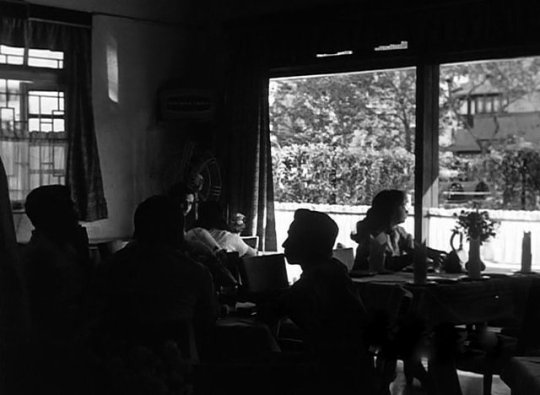
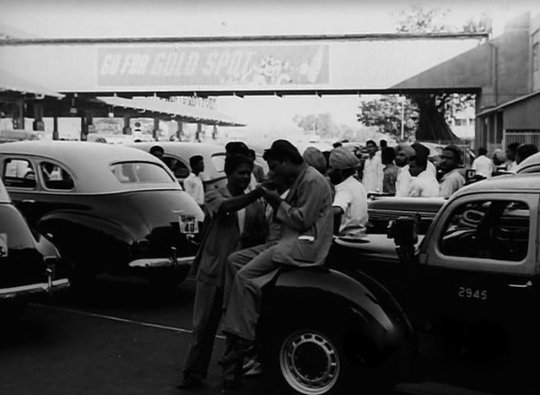
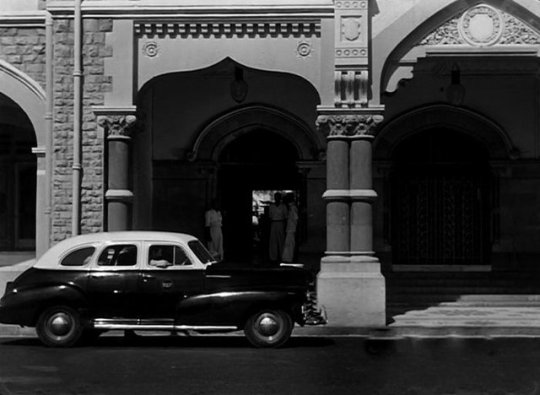

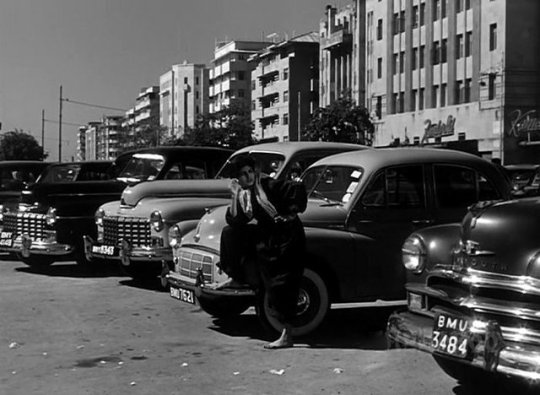

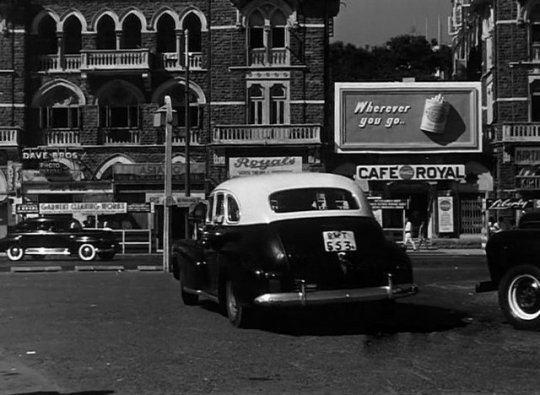
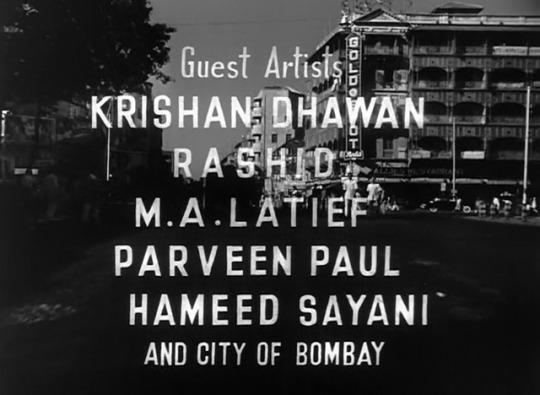
Taxi Driver was shot mostly on Bombay’s locations with a light French Éclair camera. These light cameras played a major role in the French New Wave because they allowed directors the freedom to explore locations, moving out of the studios that had traditionally dominated French cinema.
It is indeed intriguing that five years before the first film of the French New Wave, Navketan’s Taxi Driver used the Éclair camera to affectionately map the city of Bombay in a manner that was quite unusual at that time. Unlike Baazi’s studio iconography of Bombay, Taxi Driver was overwhelmingly shot in the public spaces of the city. The use of the taxi as a mode of vision provided the film with a wanderlust aesthetic that combined the movement of the taxi with the possibilities of new camera technology. Dev Anand recalls the filming of Taxi Driver:
‘We would all leave early in the morning, slog the whole day long, canning the maximum footage possible minus the soundtrack, leaving the dubbing of dialogues to be done at the post production stage, and come back home late in the evenings. It took us less than thirty five days of filming to complete the project. Survival of the company was the motivating factor, and lack of funds drove us to work at breakneck speed. The result was phenomenal. Taxi Driver turned out to be a super hit, and drove home an old truth, that big money does not necessarily make a big film.’
Taxi Driver deployed a documentary style of shooting with the exploration of the city emerging as a key element, a point noted by several reviewers of the film. The Times of India film critic wrote, “The street scenes with their glimpses of Bombay and suburbs, practically covering them all from end to end, are as good as a conducted tour of the city in all its phases and aspects, photographed and presented with the artistic appreciation of a camera pictorialist. The photography is one of this picture’s highest production values.”
Bombay Chronicle referred to the film as “refreshing entertainment” that would “appeal to Bombay crowds, since the film is laid in the city.” The desire to display and wander, guiding the viewer through Bombay’s topography, gave Taxi Driver its cosmopolitan imagination as both daytime and night time travel got carefully calibrated into the narrative. If, as many have suggested, cinema should be treated as a mode of transportation and the automobile as a mode of representation, then Taxi Driver stages this relationship unabashedly with a desire to possess Bombay through images.
For Bombay Chronicle the plot was a ‘compound of incident piled upon incident’ that would ‘prove immensely popular even if patches appear a trifle ragged or far-fetched.’ Despite such observations that the film lacked a refined narrative, Taxi Driver’s power clearly resided in the mobilization of incidents to present a vivid streetscape, an architectural panorama, a subculture of gambling, street fighting and small dreams. Uma and Ketan Anand recall how the lack of funds forced the director to innovate. With absolutely no “scope for elaborate sets, Chetan took the camera outdoors, strapped to the bumper of a taxi. Almost the entire story is shot in the streets, on the beaches, through the palm groves and gullies of a remarkable character: the city of Bombay circa 1954. This feat earned the city a separate mention in the titles”.
Cosmopolitan Dreams - RANJANI MAZUMDAR
52 notes
·
View notes
Photo


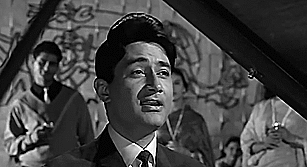

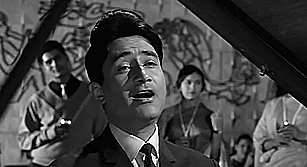

ख़्वाब हो तुम या कोई हक़ीक़त - (किशोर कुमार)
निर्देशक : सचिन देव बर्मन
𝓣𝓮𝓮𝓷 𝓓𝓮𝓿𝓲𝔂𝓪𝓷 1965
#dev anand#dev#navketan#teen deviyan#kishore kumar#evergreen songs#hindi songs#bollywood#retro#classic#old is gold#handsome#superstar#filmfare#india#films#cinema#s d burman#sd burman#kishore#mygifs#bollywoodedit
15 notes
·
View notes
Photo

A group photo of The Anand Brothers, #SDBurman, #GuruDutt, #MadanPuri, #UmaAnand, and others at 'Nav Ketan' house at 41 Pali Hill. The House of Navketan started in 1949 by #DevAnand and his elder brother #ChetanAnand, introduced many talented people in the Indian film industry.
#SahirLudhianvi, a left-leaning poet, wrote some of the finest lyrics for Navketan films such as Baazi, Taxi Driver, Funtoosh and Hum Dono. Badruddin, a bus conductor discovered by writer-actor #BalrajSahni, a friend of the Anand brothers was often given roles of a drunkard and hence got the moniker #JohnnyWalker. Navketan also launched Guru Dutt, director, and pioneer of the Bombay noir genre in the film Baazi.
The film also re-introduced music director S.D. Burman who was packing his bags to return to Calcutta. And #Jaidev, a long-time assistant to S.D. Burman, was launched as a music director in Hum Dono, in 1960.
#S D Burman#Guru Dutt#Madan Puri#Uma Anand#Navketan#Chetan Anand#Vijay Anand#Dev Anand#Sahir Ludhianvi#Baazi#Taxi Driver#Funtoosh#hum do#Badruddin#Johnny Walker#Balraj Sahni#bollywood#bollywoodirect
28 notes
·
View notes
Text
Tribute 780.
Tribute to Director VijayAnand 780.
Today I am Going to Pen an another Interesting personality from BollyWood Who is not only an Actor,Producer,Writer Editor and Director is None other then Late.Vijay Anand ,Brother of Stalwart Devanand.All the Navketan Banner Films he will be the Director..Few Versatile Directors created a Big Impact ,in those days and Vijay Anand is one is not a Exaggerated one.He has Directed Couple of Films, among those ,Unforgettable Movies for me are Guide,Jewel Thief,Johnny Meranam,Teremere sapne,and TesriManzil is worth to be mentioned here. Nav ketan had a Talented team of Technicians including Cinematographers Ratra and Falimistry is important.Music ,and Photography speaks in his creations.As a actor he proved his worth in Kora kagaz along with Mrs.Jaya Bachan.Writer RK Narayan's story was filmed as Guide and Stalwarts Devanand and waheeda Rehman played very nicely.Even though Guide got Awards for Best Direction and Dialogues from Film Fare ,commercially was not successful.He has created a New Era in Songs ,and picturaisation with Genius S.D.Burman.Teesri manzil another wonderful movie acted with Shammikapoor and Asha Parekh with hit songs By R.D. Burman if a remember correct.That was the first out side Navketan Banner Vijay Directed for T.V.Films Nasir Hussain.The Film was a Big hit in those days with Shammi kapoor’s Dance and Song still I remember..Vyjayanthimala,Mumtaz.Late Premnath and Pran acted in his Movies.He has also served in Central Board of Film Certification for a Short Period.Affectionately called Goldie from Film Fraternity ,Charming,Soft Spoken Vijay Anand is no more with us.But His Movies and Mesmarising Songs still ringing in Bolly Wood Fans Ears is True.
K.Ragavan
21-8-23
Untill We meet again next week
0 notes
Text
Jewel Thief
Jewel Thief is a 1967 Hindi spy thriller heist film directed by Vijay Anand.[1] The film stars Dev Anand, Vyjayantimala and Ashok Kumar, and features four bond girl-like actresses portrayed by Tanuja, Helen, Faryal and Anju Mahendru, with Nazir Hussain and Sapru appearing in supporting roles. It was produced by Dev Anand's home production house, Navketan Films, following their biggest hit in 1965 – Guide. The film revolves around a jewellery expert (Anand), as he and the police attempt to capture a notorious jewel thief, but in the process, their true identities get thoroughly muddled.
A mysterious jewel thief has been looting valuable gems throughout the country. As the daring crimes grab headlines, the Police Commissioner of Bombay mentions that the thief is currently operating in his jurisdiction. He vows to resign if he fails to catch the criminal by January 26.
Meanwhile, the Commissioner's son Vinay is hired by prominent jeweller Vishambhar Nath, who values his skill with jewels highly. In the course of his work, Vinay grows close to Vishambhar's daughter Anjali. At a party hosted by Anjali, Vishambhar's childhood friend Arjun and Arjun's sister, Shalini, mistake Vinay to be Shalini's fiancé, Amar. Both of them soon realise the mistake, but Arjun notes Vinay's uncanny similarity to Amar. Nevertheless, Shalini and Vinay strike a friendship, that develops into romance. Shalini's engagement ring is identified as a previously stolen piece of jewellery, and the Commissioner suspects that Amar might actually be the elusive jewel thief.
At Vishambhar's shop, all the jewellery in a concealed storeroom gets stolen. He believes that the man he had left in-charge was Vinay, although the real Vinay was with Anjali. The police believe the impersonator was Amar. A small-time thief gets caught at the shop, and divulges information about Amar's associate, Helen. Vinay agrees to help the police by impersonating Amar, and goes to meet Helen. He tricks her and learns that the real Amar is going to Pune. There, Vinay meets other members of Amar's gang, including Julie, Amar's wife. The gang fly to Calcutta and pull off another jewellery heist. Arjun and Vinay learn from Julie, who has realised that Vinay is only masquerading as her husband, that Amar has left for Gangtok, Kingdom of Sikkim.
Vinay visits Gangtok, and meets another Amar associate, Neena. He promises to help her escape the gang in return for information. Neena, however, gets Vinay captured by luring him into the gang's safehouse. The gang's real leader is revealed to be Arjun, who is the jewel thief. No person named Amar ever existed; the identity was created to baffle the police and deflect any attention away from Arjun. Vishambhar Nath was part of this carefully-planned scheme, too, while Shalini had assisted the gang to secure the release of her kidnapped brother, Shishu. When she approaches Arjun for Shishu's release, she gets locked up with him in the safehouse. Having discovered secret passages under the building, Shalini rescues Vinay and explains the situation to him. The three try to flee, but are recaptured. Vinay is administered electric shocks to wipe out his memory. The gang then make Vinay believe that 'jewel thief Amar' is his real identity. Their plan is to stage a fake heist of the Sikkimese crown jewels, and let 'Amar' take the blame. The police will be manipulated into shooting 'Amar' dead, forever lifting suspicion from the actual criminals. Since Shalini is a well-known dancer in the royal court, she is to facilitate the gang's entry disguised as a dance troupe. 'Amar' dies according to plan, and the gang celebrates. Vinay, however, had merely been acting; he had secretly warned the police about the gang's plan beforehand. Anjali, who has discovered her father's criminal involvement, has got in touch with the police too. The police surround the safehouse and Vinay corners Arjun, but he manages to escape. Vinay follows Arjun to his plane, but the latter threatens to shoot him. Anjali, though, has already removed the bullets in the gun, and the Commissioner appears to announce that the entire gang has been arrested, before January 26 as promised. Anjali takes Vinay to the cabin where Shalini is waiting for him with Shishu, as the plane gets airborne.

0 notes
Photo

His first sucess came with Ziddi (1948), co-starring Kamini Kaushal. His other films include - House No. 44 (1955), Pocket Maar (1956), Munimji (1955), Funtoosh (1956), C.I.D. (1956) and Paying Guest (1957) etc.In 1949, he launched his own company Navketan Films with his elder brother Chetan Anand.He had an intense emotional love affair with actress Suraiya during 1948-1951, but it could not come to the marriage altar, because of great opposition by Suraiya's maternal grandmother. Suraiya remained unmarried throughout her life, till she died on 31 January 2004. Later, in 1954, Dev Anand married actress Kalpana Kartik with whom he has two children, Suneil Anand and Devina Anand (Narang). The Government of India honoured him with the Padma Bhushan in 2001 and the Dadasaheb Phalke Award in 2002 for his contribution to Indian cinema. His career spanned more than 65 years with acting in 114 Hindi films, of which 92 have him play the main solo lead hero, and he did two English films. . . . Follow 👉 @retrobollywood7 . . . . #Dev_Anand #oldhindi #bollywood #superstar #oldbollywoodactress #oldbollywoodmovies #oldbollywoodmusic #oldbollywoodactors #oldisgold #retrobollywood #oldbollywoodlovers #oldbollywoodsingers #retro #bollywoodmovies #oldbollywoodsongs #bollywoodclassics #bollywoodflashback #flashback #bollywoodlovers #old_hindisongs #oldhindisongs #oldbollywood #retrobollywood7 https://www.instagram.com/p/B23Z_RJBzJE/?igshid=1iixlig1bnoz2
#dev_anand#oldhindi#bollywood#superstar#oldbollywoodactress#oldbollywoodmovies#oldbollywoodmusic#oldbollywoodactors#oldisgold#retrobollywood#oldbollywoodlovers#oldbollywoodsingers#retro#bollywoodmovies#oldbollywoodsongs#bollywoodclassics#bollywoodflashback#flashback#bollywoodlovers#old_hindisongs#oldhindisongs#oldbollywood#retrobollywood7
0 notes
Text
Life and times of Jaidev.
by
Vikram Appasaeb Jadav
*“Dekh li teri khudai, bas mera dil bhar gaya*
*Teri rehmat chup rahi, main rote rote mar gaya . .”*

One of the greatest but unsung and unwept composers of yore was Jaidev. In 1933, 15 year old Jaidev Verma ran away from Ludhiana to Bombay, to become a film star. He acted in eight films as a child artist in Wadia Film Company. But owing to his father's blindness, he had to return to Ludhiana. While he was acting in films in Bombay he took music lessons from Krishnarao Jaokar and Janardan Jaokar. After his father's death, it was his responsibility to look after his sister. After he got her married, he went to Lucknow and continued his music studies under Ustad Ali Akbar Khan.
Ali Akbar took Jaidev as his music assistant when he composed music for Navketan's “Aandhiyan” and “Hum Safar”. From “Taxi Driver” he became SD Burman’s assistant. SD had full trust in his genius assistant; each time he entrusted him with a composing or creative job, he would advise him not to complicate it with difficult ‘murkis’ and ‘harkats’. Jaidev’s contribution to the compositions of SD Burman can be gauged through these very intricate nuances, very typical of him, obvious in a number of gems like ‘Phaili hui hain sapnon ki baahen’ (House No. 44), ‘Hum bekhudi mein tumko pukare chale gaye’ (Kala Pani), ‘Hum hain raahi pyar ke’ (Nau Do Gyarah), ‘Dekho rootha na karo’ (Tere Ghar Ke Saamne), ‘Aise to na dekho’ (Teen Deviyan), and ‘Tere mere sapne ab ek rang hain’ (Guide) to name a few.
Jaidev got an independent assignment in “Joru Ka Bhai”, after which he composed music for ChetanAnand’s “Anjali”. Music of both of these films became very popular. But, with “Hum Dono”, Jaidev came into the limelight, and how? Who can forget the bhajan ‘Allah Tero Naam, Ishwar Tero Naam’ sung by Lata! And as long as there are lovers around, ‘Abhi Na Jao Chhodkar’ will be their favourite anthem as if it is a Valentine message. ‘Main zindagi ka saath nibhata chala gaya’ became the life philosophy of Dev Anand. Jaidev built a reputation as a sensitive composer who did not compromise on the quality of music for the sake of applause.
After Hum Dono’s success, a promise was made by Dev Anand that every alternate film of Navketan will have music by SD Burman and Jaidev. Accordingly, SD Burman was entrusted the baton of “Kala Bazaar” and Jaidev ‘signed’ for the music of “Guide” for which he is believed to have composed a couple of tunes too (‘Tere mere sapne ab ek rang hain’, and ‘Din dhal jaaye haye raat na jaaye); however, the film was made and released finally with music by S D Burman, his career best. Jaidev proposed, Dev Anand disposed! Probably, for the first time, Jaidev felt exploited and stifled at Navketan and “Guide” marked the end of his long and fruitful musical association with both Dev Anand and SD Burman. Navketan, too, never called him back, which was the unkindest cut of all. Though the hurt feeling lurked in his mind for long, his respect and reverence for SD Burman remained the same till his last. Besieged by a chain of misfortunes, Jaidev made “Jo kho gaya main usko bhulata chala gaya” the mantra of his life with his spiritual character to ‘guide’ him.
What happened to Jaidev after Hum Dono is the kind of heart-wrenching cruelty that film industry keeps inflicting on its best talents. After the mega success of Hum Dono songs Jaidev was the natural choice of Navketan for their next film Guide starring Dev Anand. Jaidev composed and recorded two brilliant songs and all persons in Navketan management were extremely happy with the songs. But all of a sudden, mysteriously enough Jaidev was thrown out of Guide!
It is said that Dev Anand pressurized Jaidev to work as S.D. Burman’s assistant in Guide. It was a cruel event where a sensitive creative genius like Jaidev was suppressed by the heartless mighty. Jaidev was never again invited by Navketan to compose songs. Dev Anand used both the Jaidev songs in his film Guide. It is said that those two songs were ‘Din Dhal Jaaye Haye Raat Na Jaye’ and ‘Tere Mere Sapne Ab Ek Rang Hai’ sung by Mohammad Rafi. Being cast out of Guide was a very big setback in Jaidev’s film music career. He never really recovered from the shock. Jaidev used to frequently narrate such incidents to his friends, wracked by inconsolable grief.
This was the time when Jaidev met and got introduced to young composers like Roshan and Madan Mohan. This is a great example of the saying ‘genius finds genius’. Roshan invited Jaidev to sing in his very first film. Once, when Roshan and Jaidev were going together to a film company, they saw Madan Mohan. Roshan was reported to have told Jaidev, “I am going to introduce you to a brilliant young composer”. On introduction, Madan Mohan and Jaidev needed no time at all to become best of friends.
Roshan, Madan Mohan and Jaidev had many similarities. They were rare music geniuses. They were unfailingly great human beings too. Their unquenchable thirst ran to music, languages, literature and wine. None of them were given the importance or prominence that they richly deserved. But they lived their entire lives as friends and supporters. Theirs was a rare friendship in the ‘man eats man’ world of cinema.
Film world has its own inviolable rules. It needs people who can achieve mass popularity by shortest possible route. Its impatience with geniuses is well known. Geniuses like Salil Chowdhury, Madan Mohan, Roshan, Vasant Desai and Jaidev failed in this race to huge popularity. They did not have the talent to market themselves. What complicated the matter was group politics that acted as a barrier to fresh music entering the industry. True geniuses who blazed their own path overcoming all barriers in our film industry are very few.
Jaidev also composed the musical score for “Maitee Ghar”, a Nepali film produced by King Mahendra. The King was so pleased with Jaidev that he offered him a blank cheque and asked him to fill in any amount as he wished. But Jaidev returned the cheque and asked for a tiger skin instead!
People who speak of the Golden Age of Hindi film music mostly speak of commercially successful names like Naushad, Shankar Jaikishen, S.D. Burman, R.D. Burman, Kalyanji Anandji and Laxmikant Pyarelal. But there are many composers who established their identities through the uniqueness of their compositions alone. They may not have composed music for a very large number of films. Many of their films might not have succeeded at the box office.
Jaidev had composed music for less than thirty films. The number of songs to his credit may not be more than hundred and fifty. But Jaidev is a name imprinted on the hearts of lovers of vintage Hindi film songs as the genius who gave such fabulous numbers as ‘Kabhi Khud Pe Kabhi Haalaat Pe’, ‘Allah Tero Naam’ and ‘Abhi Na Jao Chhod Kar’. ‘Kabhi Khud Pe Kabhi Haalaat Pe’ is among the best ghazal numbers sung by Mohammad Rafi. There are many who rate the number sung by Lata Mangeshkar for Jaidev ‘Allah Tero Naam’ as the best prayer song to have emerged from Indian films. In a recent televised event, Jaidev’s ‘Abhi Na Jao Chhod Kar’ was rated both as their favourites and the best Hindi film song ever by today’s stars Shankar Mahadevan and Farhan Akthar.
It is possible that an average listener may identify Jaidev as the only music composer from Hindi films to have won the National award thrice. But the lamentable fact is that this composer of incomparable songs, winner of many state awards and winner of ‘Sur Singar Samsad’ award for Lifetime Achievement in Music remains so unknown to common man that we keep hearing the question, “Jaidev? Who is he?” even from people who love his music!
It was Jaidev who introduced ghazal singer Hariharan to film music in the film Gaman (1979) with the song ‘Ajeeb Saaneha’. This is not merely one of Hariharan’s best songs it has become one of the finest ghazals in Hindi film music. It won the U.P. state award and a nomination for National award for Hariharan. In the film Kinare Kinare, Jaidev brought together four leading singers Mohammad Rafi, Talat Mehmood, Manna Dey and Mukesh to sing a song to be picturised on one character played by Dev Anand. It was an event nobody had tried till then.
Jaidev gave Yesudas some of his best Hindi songs that suited the unique pathos that Yesudas carried in his singing style. He even made him sing for Amitabh Bachhan in Aalaap released in 1977. ‘Zindagi Ko Sawarna Hoga’ and ‘Chand Akela’ with a light classical touch and the sad lullaby ‘Koi Gata Main So Jata’ in this film, were Yesudas’ very important Hindi film songs. Another fine ghazal singer Bhupinder shot to fame with a fabulous Jaidev song from his film Gharonda. Who can forget the depth of feeling that the song ‘Ek Akela Is Shahar Mein’ carried with such conviction? Jaidev’s Gaman also saw the introduction of another important singer, Suresh Wadkar to Hindi films with the classical based ‘Seene Mein Jalan’.
Jaidev was admired by producers as a good composer, but they considered him good enough for the small-budget films. Though most of his films failed at the box office, many of them, such as 'Kinare Kinare', 'Reshma Aur Shera', 'Alap', 'Prem Parbat', 'Gaman' and 'Ankahee', are remembered for his imaginative musical score. It is unfortunate that despite his expertise in classical and folk music and imaginative approach, Jaidev had only 'Hum Dono' and to a certain extent 'Mujhe Jeene Do' as the only commercially successful films to his credit.
Jaidev was a lonely man with no house of his own and no family to take care of him except a few friends who were mostly from the literary fields or judges, lawyers, painters, high rank officials and dignitaries. He needed a room to display his awards and trophies but sadly, most part of his life in Bombay, he lived alone as a tenant in a single room at Lily Court, near Ritz Hotel, Churchgate. His “Gharonda” song ‘Ek akela is shehar mein aab-o-dana dhoondhta hai, ashiyana dhoondhta hai…’ was almost biographical and depicted his plight.
A winner of four Sur Singar Samsad awards, the Lata Mangeshkar Award of the MP Government and three National Awards (‘Reshma Aur Shera’, ‘Gaman’, ‘Ankahee’), Jaidev did not get the recognition he deserved and that is a sad commentary on the musical culture of modern cinema. Looking back on Jaidev's career as a music director, his struggles, achievements and set-backs, his pensive melody 'Kabhi khud pe kabhi halat pe rona aya' from 'Hum Dono' suddenly comes to mind and the heart grieves for the talent that was wasted. By a strange quirk of fate, before his composing days, Jaidev also sang songs on All India Radio. Sahir’s “Tang aa chuke hain kashm-e-kash-e-zindagee se hum” was first sung on AIR by none other than Jaidev. He was the first composer who used the 'glockenspiel' for the cigarette lighter tune in “Hum Dono”. (It was Kersee Lord who brought this instrument to India, and also played it to good effect.)
As compared to his contemporaries, Jaidev was underpaid or not paid in time or not at all paid many a times. But, money considerations did not dilute his passion or affect the quality of work. He was a workaholic and had a method to his madness; he took note of the backdrop of the film, the situation, the character, the dialect, the lyrics and worked meticulously on the details of the song, its arrangement and orchestration till the final recording. No doubt he was exploited many a times of which he was well aware, but it was only when he felt so, he cut off his ties with the filmmakers (like with Dev Anand and S D Burman after “Guide”) and dissociated himself from the composing assignment. Not many know that the title track of Ramanand Sagar’s epoch making serial “Ramayan” was by Jaidev. He left the serial at the nascent stage itself as he was not even reimbursed the taxi fare (from Churchgate to Natraj Studios, Andheri East), leave aside the credit or remuneration for composing!!
In Jaidev’s own opinion he gave his best for Hrishikesh Mukherji’s “Aalap”, but when Mukherji and Amitabh Bachchan were ignored, what can be said about Jaidev’s plight? But Jaidev gave his all for the ultimate reward he got from “Aalap”. His association with Harivanshrai Bachchan got him the opportunity to compose the “Madhushala”, which had Manna Dey singing the “Madhushala” into the annals of posterity!
After three decades of continuous struggle as a music director, and with only thirty six films to his credit, Jaidev was a tired man. Age was catching up with him and his health was failing. He had no one except friends to care for him and no house to call his own. Earlier he used to spend his vacant hours over a glass of liquor. But later even that blessing was denied to him on medical grounds. On December 14, 1986, when Jaidev stepped on the stage to receive the fourth Sur Singar Samsad award for his classical music in 'Ankahee', he looked weak but healthy enough to last another decade. The glow on his tired face was probably the last flash of a falling star. On January 6, 1987, he died suddenly, at the age of 68, leaving the film industry to grieve for the loss of a talent it had consistently neglected. Life had been unreasonably cruel to him but death was more than gracious to liberate him from the misfortunes of life.
A Tribute to Jaidev
~ Vikram Appasaheb Jadhav
Kolhapur 06/01/2019
जयदेव को देवानंद और s d burman ने दुःख पहुंचाया guide के 2 गाने तेरे मेरे सपने याब एक रंग हैं और दिन ढल जाए रात न जाये की धुने जयदेव नेबनाई थीं।
0 notes
Text
Advanced Entries
Purchased for Projects, 2,50,000 worth Cement from Navketan Cement to be shared equally between Roads and Buildings on credit for 30 days
Purchased for Projects, 3,50,000 worth Steel from Monnet Steels. Allocate 50,000 to Roads and the rest to Buildings. Credit received for 45 days.
Project sales of Buildings were made to WinLab Technologiesfor Rs. 9,00,000. 10% Receivable after 5 days and…
View On WordPress
0 notes